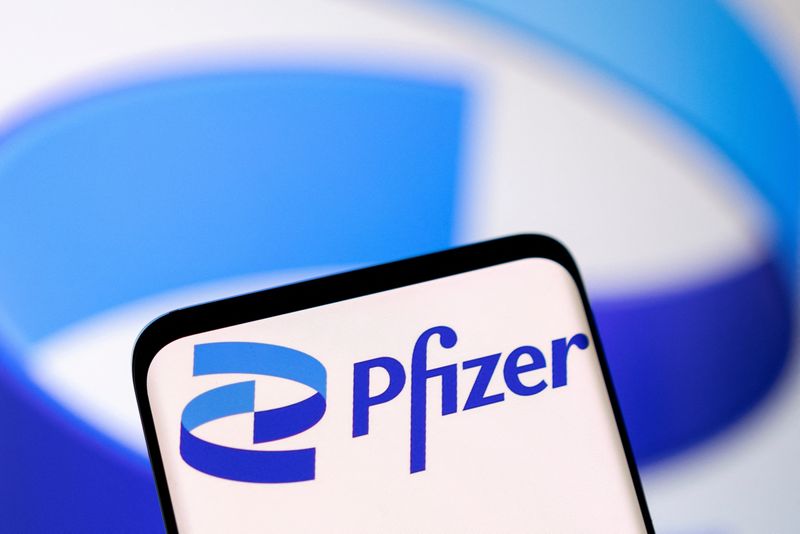(Reuters) -U.S. drugmaker Pfizer (NYSE:PFE) said on Wednesday it was withdrawing its sickle cell disease treatment Oxbryta from all markets where it is approved, citing risks of a painful complication and deaths.
Pfizer bought Oxbryta, also known as voxelotor, as part of its $5.4 billion buyout of Global Blood Therapeutics (NASDAQ:GBT) in 2022.
It reported $328 million in revenues from the therapy for the full year 2023.
Pfizer is also discontinuing all studies and access programs related to the treatment based on the available clinical data, which shows that the benefit of the drug no longer outweighs the risks associated with its use, it said.
The company added that the data showed an imbalance in vaso-occlusive crises, a complication of the disease and "fatal events" that required further assessment.
Vaso-occlusive crisis in patients with the disease occurs when blood flow gets blocked, depriving a tissue of oxygen and triggering an inflammatory response.
The withdrawal comes ahead of an "extraordinary meeting" on Thursday of the European health regulator's Committee for Medicinal Products for Human Use to review Pfizer's drug.
In a study of 236 people, there were eight deaths in patients taking Oxbryta and two deaths in the placebo arm.
"The initiation of the review follows an imbalance of deaths between voxelotor and placebo observed in clinical trials," the European Medicines Agency said in an agenda of the meeting posted on its website.
The U.S. Food and Drug Administration (FDA) granted an accelerated approval to Oxbryta in 2019. It is also approved in Europe, the United Kingdom and United Arab Emirates.
Pfizer said it would further review the available data and had notified regulatory authorities about its findings. It said it had advised patients to contact their physicians to discuss alternative treatment.
Other treatments for sickle cell disease include regular blood transfusions and established hydroxycarbamide, also known as hydroxyurea, to reduce the risk of blood vessels becoming blocked.
But new options have been launched. The FDA in December last year approved two gene therapies for the disease, pitched as one-time treatments, one by an alliance of Vertex (NASDAQ:VRTX) and CRISPR Therapeutics, the other by Bluebird Bio (NASDAQ:BLUE).

The disease is an inherited blood disorder in which red blood cells become sickle or crescent shaped and can cause strokes, organ damage and early death.
Pfizer said it did not anticipate that the withdrawal would impact its 2024 financial outlook.